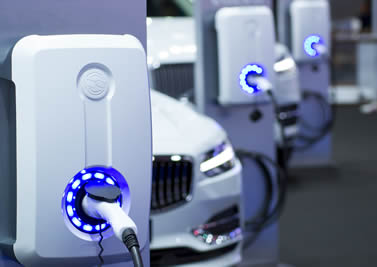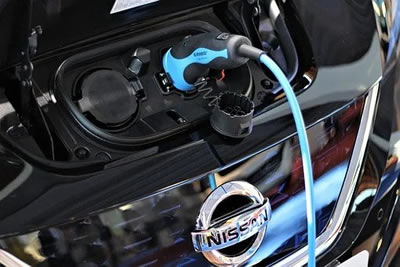Full Electric (EV) Cars – Frequently Asked Questions
Published Date: 17th Dec 2020
In the coming years you will see a wider range of full electric cars available and the UK government is investing heavily in related infrastructure and charging stations.
If you are considering a new electric car, here are some of the most frequently asked questions.
- What Is A Full Electric or EV Car?
- How Much Does A Full Electric Car Cost?
- What Is the Range Of An Electric Car?
- How Long Does An Electric Car take To Charge?
- How Much Does an Electric Car Cost To Run?
- Are Financial Grants & Incentives Available To Buy An Electric Car?
What Exactly Is An EV or Full Electric Car?

An EV vehicle relies entirely on an electric motor which is powered by a large battery, there’s no combustion engine at all and no need to fill up with diesel or petrol. Instead, a full electric car needs to be ‘plugged-in’ to charge.
Hybrids and plug-in hybrids differ, they include an electric motor and battery, but combine it with a smaller petrol or diesel combustion engine. The combustion engine is used in combination with the electric motor to power the vehicle and it is also used to charge the battery on the go.
With a standard Hybrid (sometimes referred to as self-charging hybrid) there is no plugging-in, all charging is done on the move utilising the combustion engine and other technologies like brake regeneration. As the name suggests a plug-in hybrid can charge its battery by plugging-in in the same way you do with a full electric vehicle.
How Much Does An New EV Car Cost?

One of the biggest complaints about full electric cars has been the price tag, but as the number of electric cars available to buy grows, prices will inevitably fall. With government grants, further discounts, and funding for home chargers an EV car is becoming much more affordable.
The Renault Zoe is one of the most affordable small electric cars available right now and with current government grants and our additional discount you could save up to £9000.
Renault in partnership with Chargemaster are also covering the cost of a 7kW home charger supplied and fitted too. At the time of writing this article you can pick up a new Renault Zoe for little over £23,000.
The Nissan Leaf is also another extremely popular full electric car that has been at the forefront of the EV car revolution, process for Leaf with discounts start from under £24,000.
How Far Can An Electric Car Travel On A Full Charge?
Electric car technology has come a long way over the recent years and there are several mainstream electric cars that boast a range of well over 200 miles. The Renault Zoe has a range of up to 245 miles, the standard Nissan Leaf offers a range of up to 168 miles while the Nissan Leaf e+ offers a range of up to 239 miles. If you are looking for an SUV the KIA e-NIRO can offer a range of up to 283 miles and prices start at around £30,000 with discounts.
Bear in mind when planning a long trip that the range of your car will be reduced by various factors including how hard you drive it. Heating, air con, lights and entertainment systems all required battery power too. For long trips, to get the best range always put the vehicle in its most economical drive mode, usually called something like Green or ECO mode.
How Long Does An Electric Car Take To Charge?
Most home charging boxes are 7kW and if we take for example a Renault Zoe, it can be charged from 0-100% in around 9 hours. That should be perfect for most people for an evening/overnight charge. A standard Nissan Leaf is quicker with a full charge in around 5-6 hours with a 7kW home charger.

If you charge at a 50kW rapid charging station, then you can get a 80% charge of a Nissan Leaf in around 30 minutes and a Renault Zoe can be charged to give you around 90 miles range in 30 miles.
How Much Does An EV Car Cost To Run?
Your running costs will be significantly cheaper with zero road tax to pay and lower fuel costs. Consider this, a Renault Zoe will cost around £7.50 to charge at home giving it a range of up to 245 miles. A petrol diesel returning a healthy 50mpg would cost more than £20 in fuel for the same mileage.
You still need regular service intervals with an electric vehicle, but with fewer moving parts an electric car should require less maintenance. You do not need to change oil, oil filters or spark plugs and the brake regeneration systems of an EV car can also help prolong the life of your brakes.
The biggest consideration of a new EV car will be the battery with manufacturers offering extensive warranties covering the battery and related components. The manufacturer’s warranty usually covers the battery to retain at least 70-80% of its charges in the first 100,000 miles. In fact, surveys show that an EV vehicle on average will retain over 90% of its charge after five years and with technology improving this is only likely to improve further.
That are also big benefits to buying a full electric company car with zero benefits in kind to be paid in 2020/21 and just one percent in 2021/22.
Financial Incentives & Grants
The UK Government offers a £3000 Plug-in Grant for those purchasing a new electric car and manufacturers offer various promotions which you should research.
Renault have teamed up with Chargemaster to offer customers who buy a brand-new Zoe a new 7kW charger fitted at their home. Other manufacturers have teamed up with power companies to offer various incentives, for example a set quota of free charging at charging stations each year.
You’ll also avoid congestion & low emission zone charges like London's ULEZ levy with a full electric vehicle.
